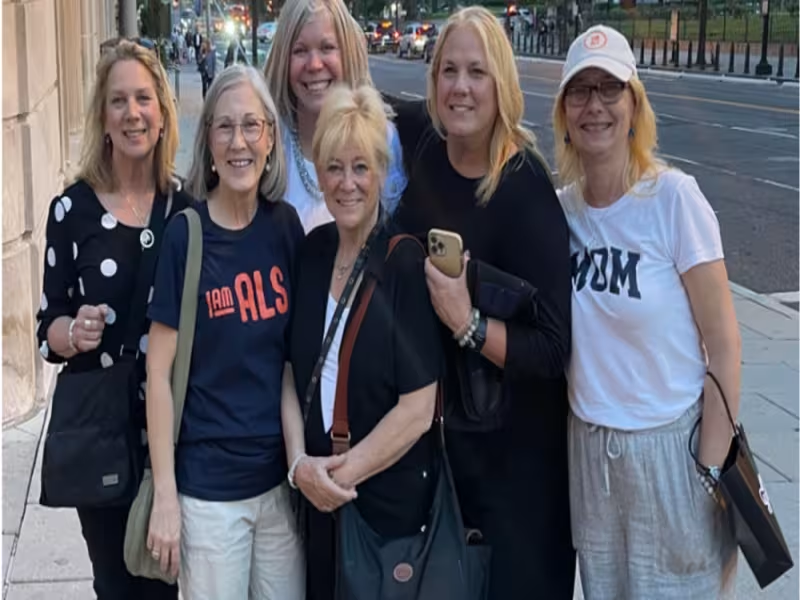
SHERIDAN, WYOMING – July 21, 2025 – In a heartfelt campaign fueled by hope and survival, participants in trials of BrainStorm Cell Therapeutics’ NurOwn have submitted a Citizens’ Petition to the FDA, seeking a renewed evaluation of the stem cell therapy rejected in 2022. Their plea centers on real-world results showing a remarkable 90% survival rate in an expanded access program (EAP) — a figure that many say “defies logic” and demands a second look.
Patients and Families Demand Action
The drive for reconsideration draws strength from powerful personal stories. Neurologist Danielle Geraldi-Samara appealed to the FDA on Access Newswire, urging approval of NurOwn with a commitment to post-marketing studies. Her plea followed the July 3 Citizens’ Petition, echoing patients' voices determined to change their fate.
Nick Warack, a lead petitioner living with ALS, emphasized in an email to BioSpace, “We believe the expanded access program data for NurOwn demonstrate a dose-dependent response that enhances the already impressive results seen from the 3 doses in the Phase 3 trial.” According to BrainStorm’s June 16 release, nine out of ten Phase III participants survived over five years — a stark contrast to the typical 10% five-year survival rate in ALS.
“It defies logic,” stated BrainStorm board member Stacy Lindborg, underscoring the urgency for dialogue with regulators.
The Clock Is Ticking for ALS Patients
Despite early hopes, BrainStorm’s biologics license application faced rejection in 2022, and a subsequent advisory committee vote went 17-1 against approval in 2023. Although the company plans a Phase IIIb trial — expected to conclude in 2029 — the timeline feels intolerable for patients and families.
“[NurOwn] won’t be available to anybody until ‘29 and my son will be dead,” said Mitze Klingenberg, whose son Matt received doses in both the Phase III trial and the EAP. “That’s not acceptable to me.”
Geraldi-Samara warned of the dangers of a Type II error — failing to approve a drug that actually works — highlighting cases like young patient Kade Simons, who maintained lung function years after treatment. “Most of all, I was astounded that Kade was still breathing on his own without the assistance of non-invasive ventilation,” she shared.
Real-World Stories Fuel the Fight
Families like the Klingenbergs, Simonses, and Bellinas, nicknamed “the Mama Bears,” have documented striking health improvements in their sons after NurOwn treatment:
- Matt Bellina, a Navy veteran, regained strength and lung capacity after seven doses under the Right to Try Act, even standing unaided from his wheelchair.
- Kade Simons, who suffered from asthma, rarely needed his inhaler post-treatment and instantly recognized the positive impact of NurOwn.
- Matt Klingenberg, now eight years into ALS, surprised his family by standing from his wheelchair — a milestone they never expected.
Their stories underline the call for the FDA to weigh real-world evidence alongside traditional trials.
A Call for Fair Standards in Drug Approval
Warack and the Mama Bears challenge why survival data sufficient for cancer drug approvals isn’t considered valid for ALS treatments. “NurOwn’s survival data exceeds the survival data used to support accelerated approval of many cancer therapies,” Warack argued.
Lindborg echoed this sentiment, highlighting the urgent need for flexible regulatory pathways, especially for diseases with high unmet medical needs. “While NurOwn addresses an unmet need, the ALSFRS-R and biomarkers are not as well validated as oncology endpoints,” she acknowledged but insisted the evidence merits FDA reconsideration.
A Crucial Moment for Patients, Regulators, and Investors
The Citizens’ Petition addressed to Health Secretary Robert F. Kennedy Jr. and FDA leaders aligns with a proposed regulatory pathway allowing conditional approvals based on a “plausible mechanism of action” for rare diseases. Warack believes NurOwn meets this threshold, urging the FDA to give the petition “due diligence.”
BrainStorm remains committed to advancing the therapy despite financial hurdles. CEO Chaim Lebovits stressed, “Any positive regulatory action regarding NurOwn’s path forward would undoubtedly change the landscape for funding our Phase 3b trial.” He further highlighted that broad access could generate more real-world data than traditional trials alone.
With both patients and BrainStorm aligned in their quest, the ALS community hopes this petition will offer a critical second chance — and possibly a lifeline.
Learn more at BrainStorm’s official website